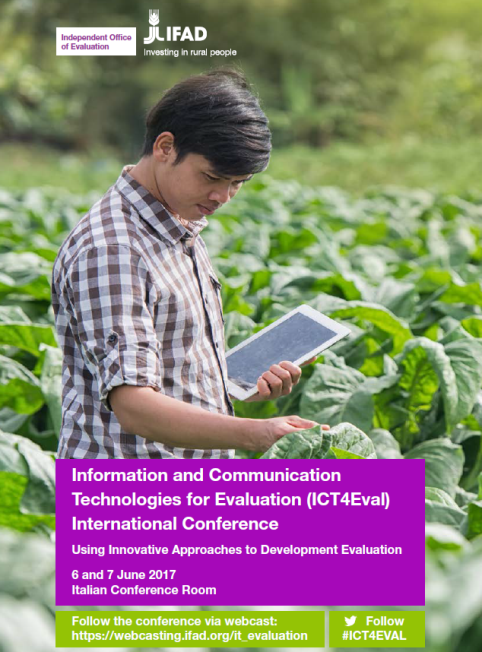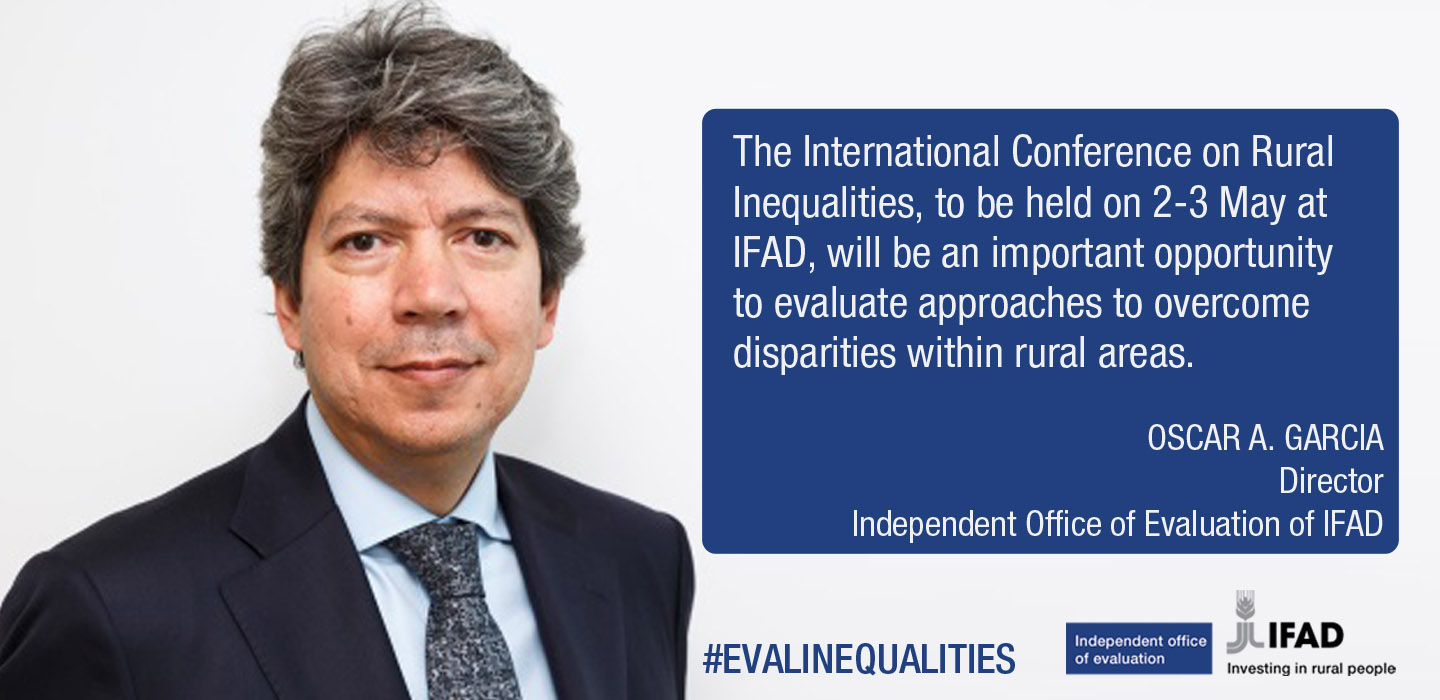Maximizing the efficiency of development evaluation through ICTs - IOE
2 June 2017 - The Independent Office of Evaluation of IFAD (IOE) will bring together a range of technology and development experts for an international conference on information and communication technologies for evaluation (ICT4Eval) from 6 to 7 June 2017.
Participants will discuss the latest innovative approaches to using information and communication technologies (ICTs) in development evaluation and will explore whether recent innovations in ICTs have demonstrable benefits in the intersecting fields of development evaluation and rural transformation.
Rural development is an important factor in efforts to achieve economic and social progress. A transformation of rural spaces, productive sectors and societies is needed – one that is inclusive, dynamic and sustainable. To promote such a transformation requires a new development paradigm that empowers rural people to play their economic, social and environmental roles to the full.
Development practitioners are increasingly recognizing the role that ICTs can play in supporting rural development interventions, as well as in monitoring and evaluating the activities to better assess their impacts.
The ICT4Eval event will discuss key issues related to ICT for development evaluation and will take place at IFAD’s headquarters in Rome and will be hosted by Oscar A. Garcia, Director, IOE and Chair of the Evaluation Cooperation Group of the multilateral development banks.
“The introduction of the Sustainable Development Goals [SDGs] has highlighted limitations when it comes to the measurement and availability of data," says Garcia. "Assessing progress towards the SDGs is often a challenge for evaluators. However, the proliferation of ICTs has opened up newer and better avenues for collecting, analysing and disseminating data for evaluations.”
The advantages and potential pitfalls of ICT usage will be discussed during the conference, including such topics as integrating ICTs into project design, the potential for data distortion and how to make sense of the vast amount of data available.
"ICTs have great potential to maximize the efficiency of the evaluation process in terms of cost and time,” says Garcia. He noted, that if an evaluation process is inefficient, the automation alone will not make it efficient.
“The potential pitfalls of using ICTs for development are several. The ethical dimension is one of the main ones. We need to make sure that we are not extracting data from beneficiaries without their consent and that we respect their privacy. In short, ICTs are not a panacea but their potential to help achieve the SDGs is greater than the possible pitfalls," says Garcia.
Conference breakout sessions will cover the full spectrum of data usage, from collection through surveying and remote sensing, to analysing, visualizing and sharing information. The conference provides an ideal venue for exchanging views and expertise from across a wide spectrum of development practitioners, including multilateral development organizations, academia, and the private sector.
To further enhance the networking and knowledge exchange of the conference, a tech fair will be featured during the second day. Participants will gain first-hand experience of what is available to evaluators today. They will also have a good opportunity to meet potential future development partners.
According to Garcia, in order to reach the SDGs and Agenda 2030, information and knowledge are critical to establish a good baseline to understand where we are now, as well as to better monitor the progress we make in the future. ICT4Eval will be one piece of the puzzle to keep ICTs high on the agenda and provide a solid foundation and meeting ground when moving forward.
"If we want to truly achieve inclusive rural transformation, we must not forget about the communication part of ICT," says Garcia. "This means making sure that we as evaluators and development practitioners share the collected information with each other and with the people we meet in the field, keeping in mind the many cultural differences."
Follow the conference:


